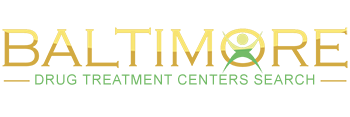Meth Addiction in Baltimore, MD
When it comes to drug abuse, one of the worst conditions a person can develop is a meth addiction. While meth addiction is not nearly as common as some other addictions (namely to legal and illegal opiates), when it does occur, it is a serious and difficult situation to overcome.
Meth addiction is a chronic and relapsing disease. It not only affects the thoughts, emotions, and behaviors of the affected person, but also changes their brain structure and function on a basic chemical level. Because meth addiction is such a complex disorder and is in fact, a diagnosable disease, it requires treatment to be dealt with and overcome.
How Common is Meth Addiction in the United States?
One piece of good news for the country is that meth addiction has been steadily on the decline in recent years. A massive joint effort between law enforcement, drug treatment centers, and the court and legal systems has resulted in more meth labs being shut down, stiffer punishments for manufacturing and distributing meth, and more extensive treatment plans and options for those who develop a meth addiction.
Between the years of 2005 and 2011, the percentage of people seeking out treatment for meth addiction dropped from 8.1 percent to 5.6 percent of the total admissions. During a recent survey, it was determined that 1.2 million people had used meth in the past year whole 440,000 had consumed meth at some point in the last month.
Why Meth Abuse is Dangerous
Meth is a drug that has a wide variety of effects on a person’s life and health. One of the biggest dangers of meth abuse is, of course addiction (as well as dependence). When a person consumes meth, it causes a huge surge in the levels of dopamine in the body. This makes a person feel extremely euphoric and wakeful. However, the surge of dopamine is so strong that even with one use, the brain may start to adjust the way it functions and the way it is structured to accommodate the drug.
When the brain changes the way that it functions in order to accommodate meth, it is developing a chemical or physical dependence on the drug. This combined with the instant surge of pleasure that a person experiences, and addiction can also occur in the first few times a person consumes methamphetamine.
Effects of Meth
- Dental damage
- Increased body temperature
- Elevated heart rate
- Appetite suppression
- Depression
- Elevated blood pressure
- Anxiety
- Malnutrition
- Weight loss
- Schizophrenia
- Organ damage
- Skin infections
Treating Your Meth Addiction
The treatment of an addiction to meth begins with breaking the chemical dependence a person has on meth. This is accomplished through detox, and should always be done under the supervision of medical professionals in medical detox. In medical detox, the withdrawals that a person experiences will be monitored and managed by doctors who can treat symptoms with prescription medications and other treatments.
Once detox is complete, a person will need to begin the process of learning and building positive habits, behaviors, and coping mechanisms, as well as to determine and address the reasons that they began engaging in meth use and abuse in the first place. Conventional and alternative treatments can be combined to achieve these goals and give the recovering addict the skills they need to avoid meth use in the future.
Baltimore Drug Treatment Centers will provide you with access to the assistance and care you need for meth addiction recovery. Just give our recovery advocates a call today at (410) 260-0350 to get the process started.

